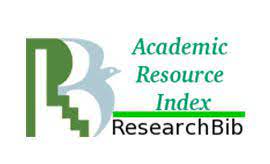COGNITIVE-COMMUNICATIVE APPROACH DURING ENGLISH LEARNING IN POLYTECHNICAL INSTITUTIONS OF PROFESSIONAL ADVANCED EDUCATION
DOI:
https://doi.org/10.51707/2618-0529-2020-17-03Keywords:
cognitive-communicative approach, blog technology, wiki technology, podcast, linguistic corpus.Abstract
The article considers the essence and basic interpretations of the “cognitive-communicative approach” (CCA) concept, defines its characteristics and qualities, identifies the features of its application in institutions of professional prehigher education (PPHE) of Ukraine. The intercultural competence development problem as an indicator of the person’s ability to effectively participate in foreign language communication at the intercultural level formation is outlined. It is noted that a thorough knowledge of a foreign language is necessary for students of polytechnic institutions of PPHE for mobility, further career growth, competitiveness, communication with foreigners on a professional and personal level, expanding worldview, etc. The authors of the article identified the CCA as an approach to teaching English during both full-time and distance learning. The basic principles of this approach aimed at developing the competence of expressing the communicative intention of the student are characterized and systematized. The concepts of categorical features and terminological tools of the CCA have been clarified. The terms “blog technology”, “wiki technology”, “podcast” and “linguistic corpus” are defined. Possibilities of the educational and cognitive skills and abilities development which are provided by each of the mentioned technologies are considered. The authors described the methodological and pedagogical problem of educational material organization and processing in the polytechnic institutions students communicative and cognitive competence formation process. The article proposes the principles of processing educational material, which contribute to the development of language competencies of PPHE students of Ukraine. The socially conditioned need to use distance learning as a means of mastering the skills of students independent work in learning a foreign language is substantiated.
References
Marchenko, N. Communicative-cognitive approach to teaching future teachers of German on the basis of English. Osvita rehionu. Retrieved from : http://social-science.com.ua/article/447 [in Ukrainian].
Kornytska, Yu. A. Linguistic corpus in foreign language teaching. Retrieved from : http://www. kamts1.kpi.ua/ru/node/2459 [in Ukrainian].
Word formation. Retrieved from : https://slovotvir. org.ua/words/kohnityvnyi [in Ukrainian].
Vygotskiy, L. S. (2005). Psychology of human development. Moscow : Smysl; Eksmo [in Russian].
Hodovanets, N. I., Lehan, V. P. (2016). Cognitive and communicative approach in foreign language teaching. Naukovyi visnyk Uzhhorodskoho universytetu. Seriia: “Pedahohika. Sotsialna robota”, 1(38) [in Ukrainian].
Kuvarova, O. K. (2006). The role of speech culture in the formation of linguistic personality. Culture of professional speech : proceedings of the regional scientific-methodical conference. Dnipro : Porohy, 142 [in Ukrainian].
Description of pan-European levels of language proficiency. Retrieved from : https://www.libra-terra.com.ua/na-dopomohu-vchyteliu/info/ opys-zahalnoievropejskykh-rivniv-volodinnia-movoiu/ [in Ukrainian].
Prykhodko, A. M. (2013). Language teaching in higher education institutions. The use of blog technology in the process of teaching Russian as a foreign language. Kharkiv, 202–208 [in Ukrainian].
Public electronic dictionary of the Ukrainian language ukrlit.org. Retrieved from : http:// ukrlit.org/slovnyk/%D0%BA%D0%BE%D0%BC%D1%83%D0%BD%D1%96%D0%BA%D0%B0%D 1%86%D1%96%D1%8F
Solomatina, A. G. (2011). Developing students’ speaking and listening skills through learning podcasts. Yazyk i kul’tura, 2 (14), 130–134 [in Russian].
Sysoev, P. V. (2013). Blog technology in foreign language teaching. Yazyk i kul’tura, 4, 115–127 [in Russian].
Sysoev, P. V. (2012). Information and communication technologies in foreign language teaching: theory and practice. Moscow : Glossa-press [in Russian].
Sysoev, P. V., Evstigneev, M. N. (2010). Methods of teaching English using new information and communication Internet technologies. Moscow : Glossa-press [in Russian].
Shabat-Savka, S. T. (2011). Discourse as a relevant way of embodying communicative intentions. Studia Linguistica, 5, 451–457 [in Ukrainian].
Downloads
Published
How to Cite
Issue
Section
License
Copyright (c) 2021 Scientific notes of Junior Academy of Sciences of Ukraine

This work is licensed under a Creative Commons Attribution 4.0 International License.













